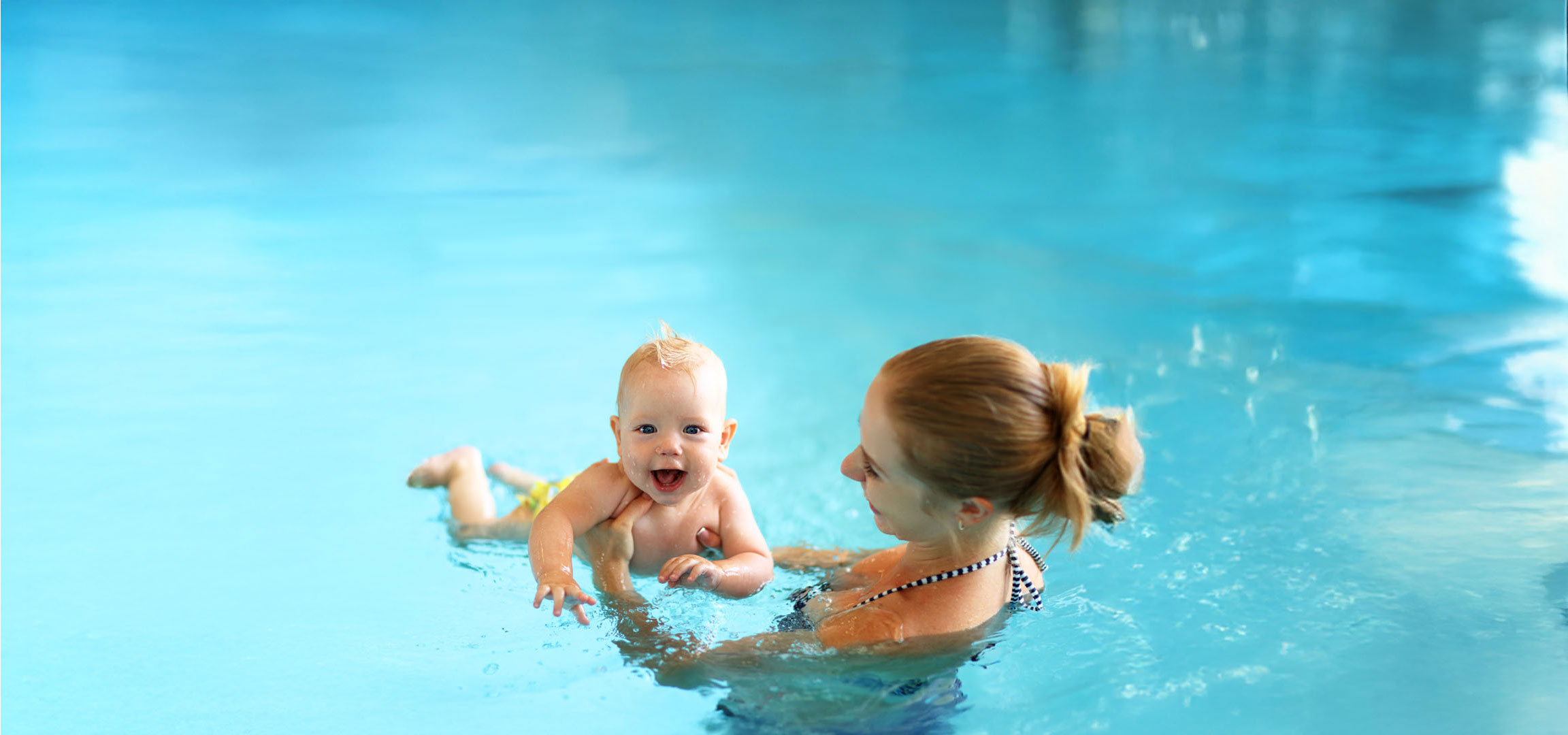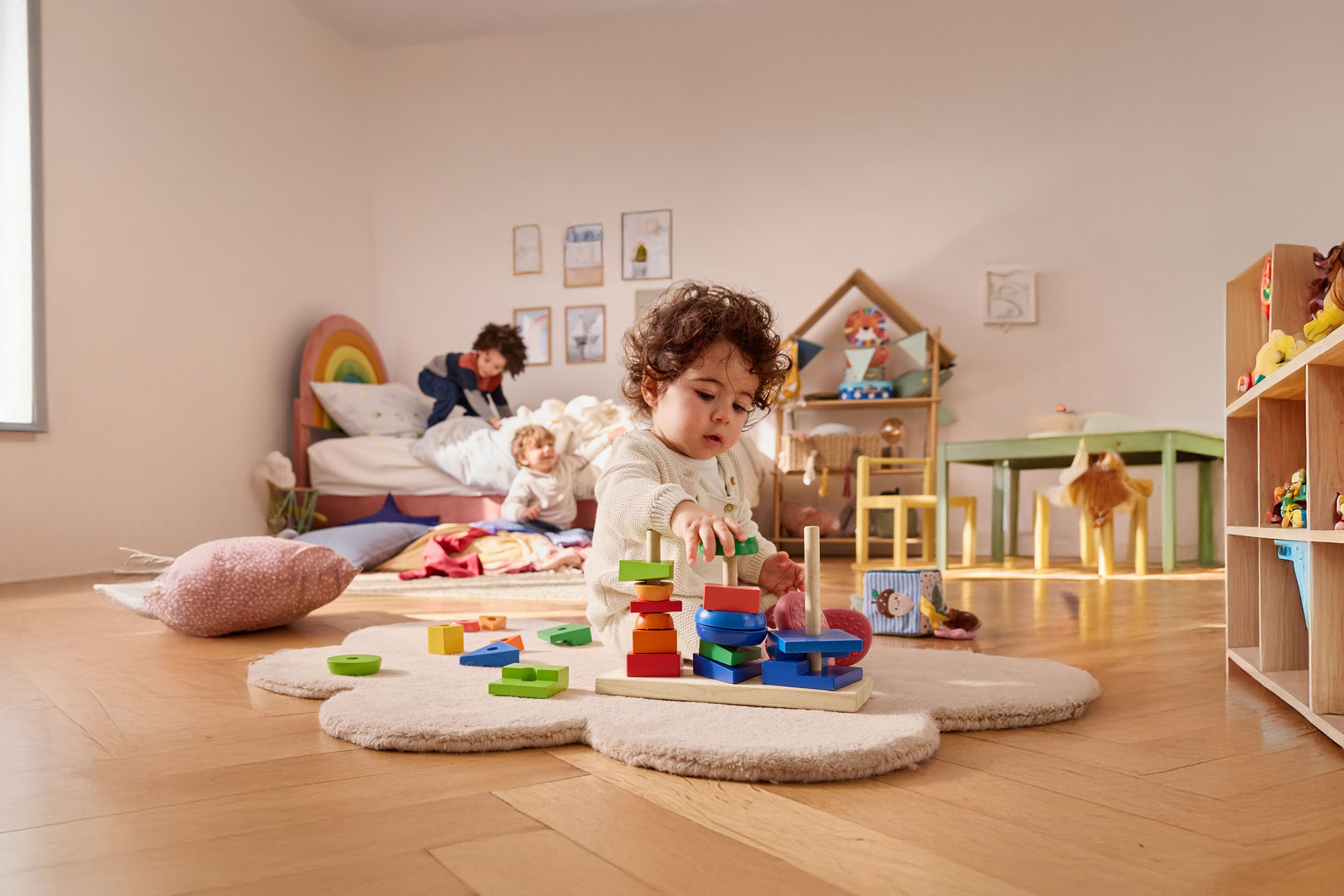Do you have a desire to start baby swimming? – From when you can start
Baby swimming strengthens the bond between parents and child. In most cases, it is great fun for the little ones and has a positive effect on their motor and cognitive skills. Certified aqua instructors usually offer baby swimming courses. For safe swimming fun, it is of course important to find the right time. If you are thinking about when you should start baby swimming for the first time, you can use recommendations on age and physical development as a guide.
Baby swimming - the most important tips and recommendations
What does “baby swimming” mean?
“Baby swimming” or “infant swimming” refers to special courses in which parents and children play and move together in the water. This form of water exercise has become increasingly popular since the 1960s, as it promotes the motor skills of babies and has a positive effect on the mother's postnatal recovery. Many babies can even paddle when held in a prone position. However, “baby swimming” does not mean swimming lessons for babies.
Who offers baby swimming and how much does it cost?
As a rule, you can find appropriate offers at any large swimming pool. Baby swimming courses are usually offered by certified aqua instructors. This has the great advantage that you get professional guidance. Swimming coaches and midwives can also offer baby swimming courses. The courses usually cost between 5 to 15 euros per hour or are paid for on a monthly basis. Health insurance companies sometimes reimburse the costs of baby swimming.
Should I register for baby swimming or wait?

Many babies love water. Researchers believe that it reminds them of their time in the womb. And as we know water has a calming and soothing effect. However, there are also reasons to be wary about baby swimming. For example, your baby could be sensitive to chlorine or catch a cold. You can make it easier for yourself to answer the question "Baby swimming - yes or no?" by weighing up the pros and cons according to your personal feelings.
Baby swimming - yes or no?
Advantages
- Promotes the baby's motor and cognitive skills
- Is fun for the baby
- Strengthens the bond between mother and child
- Due to the zero-gravity conditions, the baby can try out new movements in a playful way
- Early experience with water increases self-confidence when learning to swim later on
- Promotes the mother's recovery
- Enables parents and child to make new social contacts
Disadvantages
- Chlorinated water can cause allergies
- Babies swallow water and ingest bacteria and germs, which can lead to gastrointestinal infections, respiratory diseases or middle ear infections
- Critics argue that in many courses, babies are turned into passive "object" that are not allowed to gain much active self-awareness in the water.
Baby swimming - from when can we start?
From when you and your little one should start baby swimming depends on various factors. These include, for example, physical maturity and whether your baby has an increased risk of allergies. Temperament also plays an important role - every baby reacts differently to being in water.
Recommended period: Between the fourth and sixth month
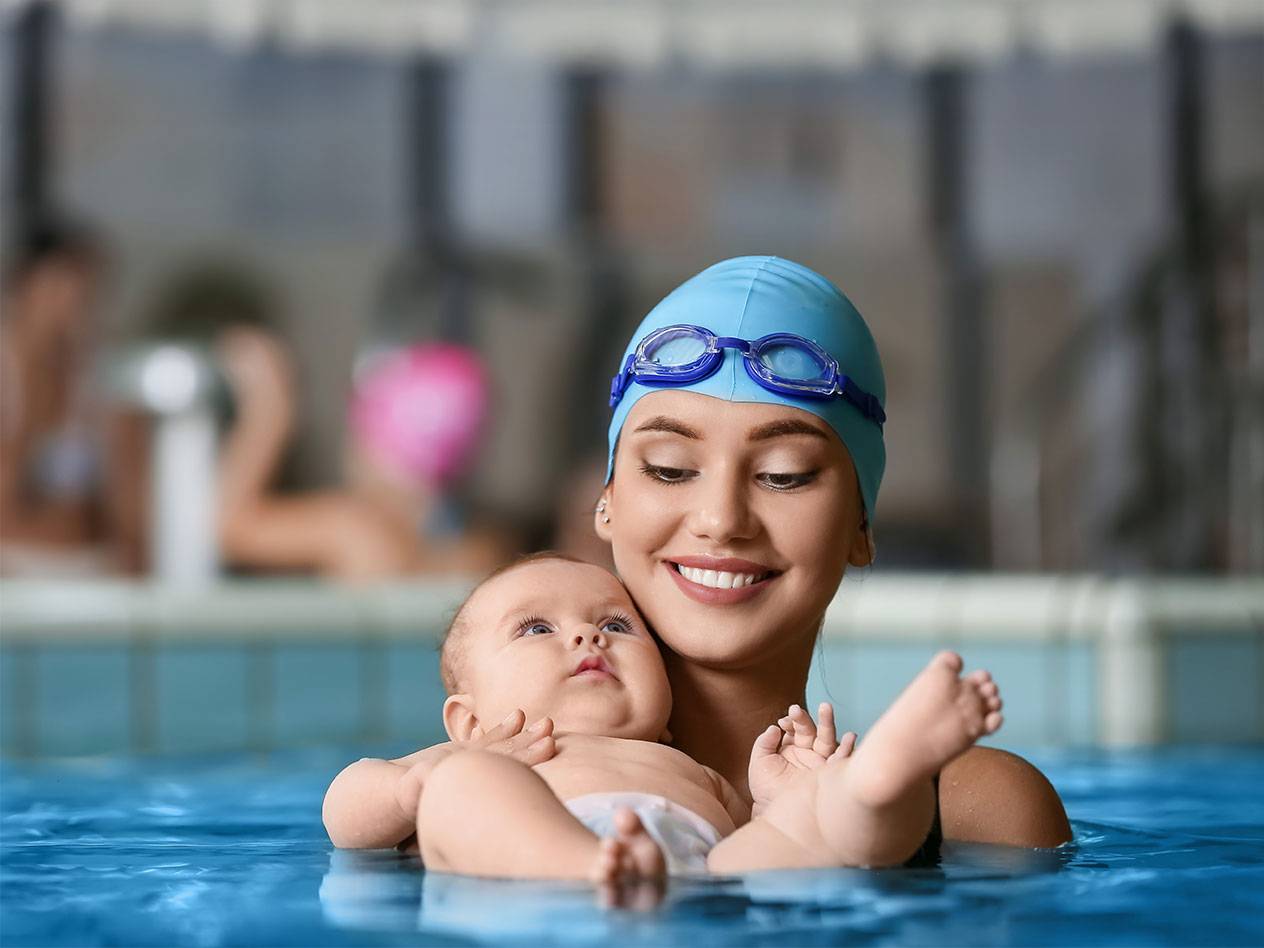
Does your baby enjoy having a bath at home? That's a good prerequisite for baby swimming in a large pool. However, you should refrain from swimming in public pools until your baby is four months old. Most parents start classes between the fourth and sixth month of their baby's life. By then, the baby’s health system can regulate its own body temperature to a certain extent. However, this varies from child to child and of course also depends on whether your baby was born premature. If in doubt, seek advice from your paediatrician or midwife.
Slowly get used to the temperature difference
Slowly get your baby used to the cooler water temperature that is common in most swimming pools by having the bath water colder each time at home.
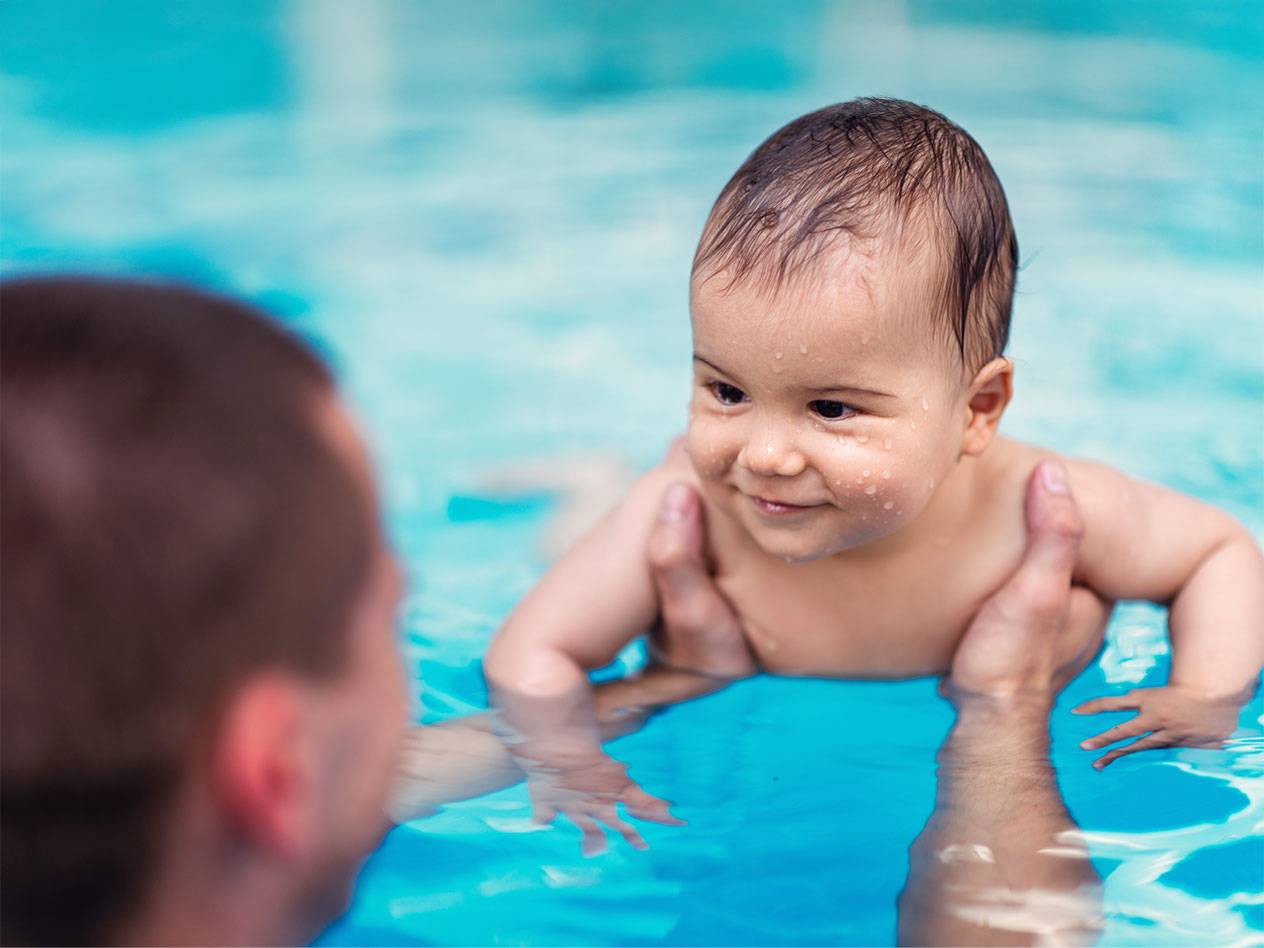
Physical development as a further factor
Babies between four and six months become increasingly active and can usually hold their head up for a short time in the prone position. This is an important prerequisite for you to be able to use positions in baby swimming where your baby lies on its stomach on the water. In most cases, instructors will recommend that you keep switching between laying face upwards and prone position so that it doesn't become too strenuous for your little one.
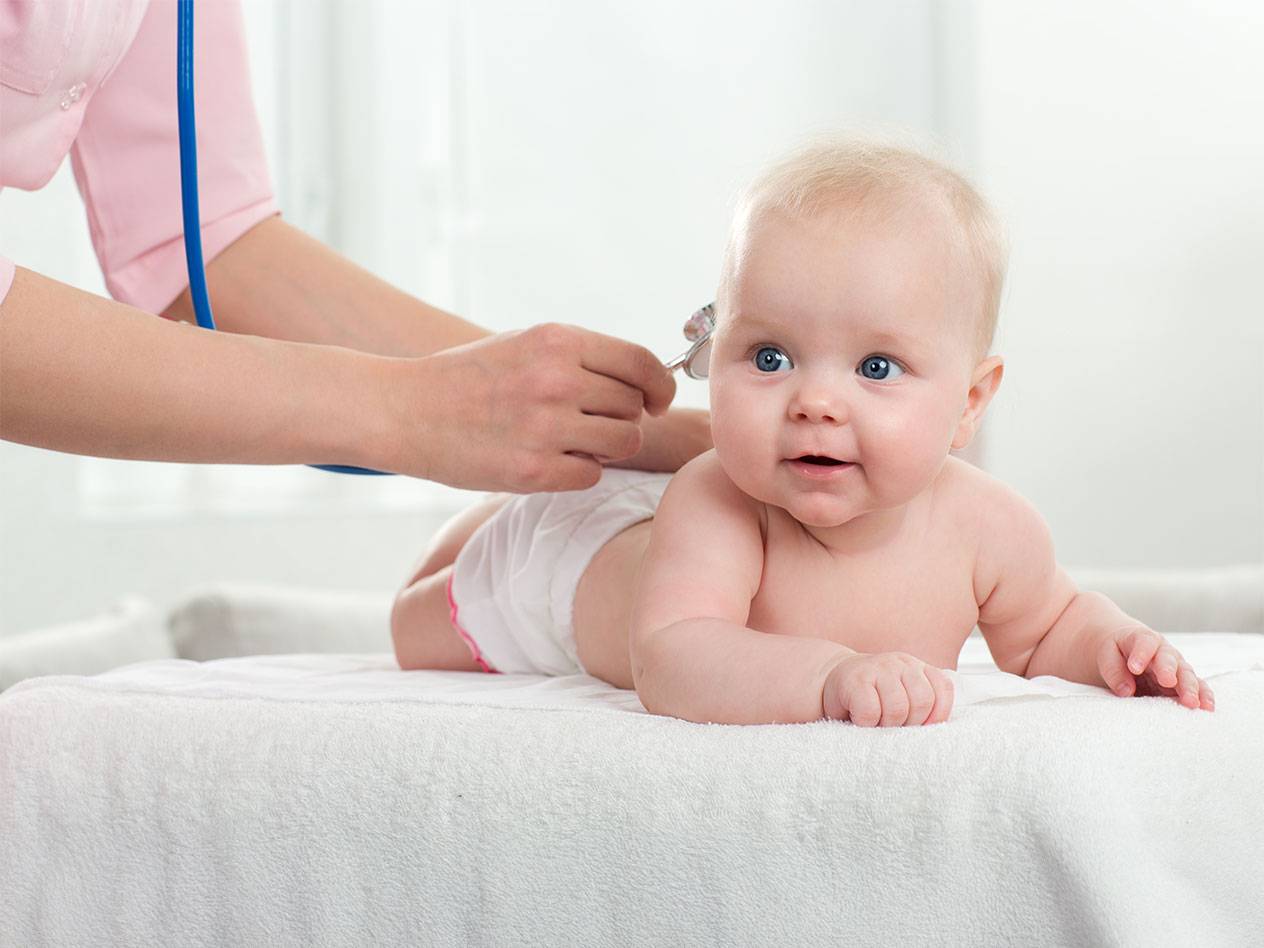
When the paediatrician should be consulted
Under certain circumstances, chlorine can set off allergies. If your baby has an allergy or if you or your partner have allergies or even asthma, it is best to ask your paediatrician when they recommend swimming for babies. As baby swimming can facilitate the development of infections, especially gastrointestinal infections, the Standing Committee on Vaccination (STIKO) recommends vaccinating babies against rotavirus at least 14 days before they start swimming.
Equipment for baby swimming - checklist
- Swimming nappies in the right size
- Hooded towel
- Bath toys
- Breastfeeding / bottle after swimming
- Bathrobe
- Body lotion for dry skin after bathing
- Swimming aids for babies
